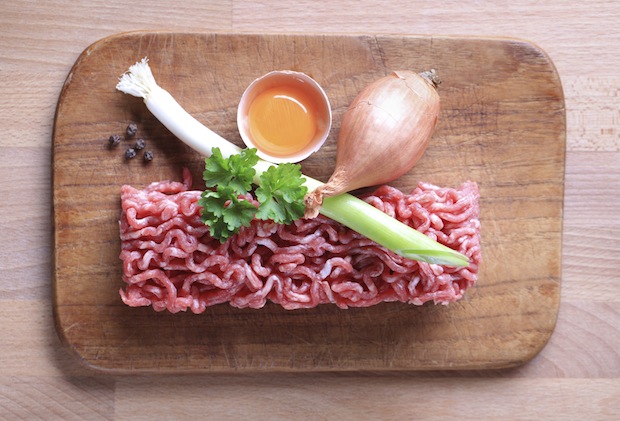The coalition said they would tame health and safety, which would be great for those of us in the food -business. But they, like the public, like to blame Brussels, and the problem is not with Europe, or not often. EU law is basically Napoleonic, and sensible. It places the onus on the operators to ensure safety, and to be able to prove that what they do is safe. If it turns out not to be, then they will be prosecuted and likely clapped in jail. Fair enough if you have maimed or poisoned someone.
Our law is basically Roman and we like to stipulate every tiny detail in statues. Where Europe will use words like ‘reasonable’, ‘as necessary’ or ‘appropriate’ and lets the operator determine what that means, we produce reams of regulation to flesh out European law and reams of ‘guidance’ on top.
The E. coli scare has precipitated a rash of guidance from the Food Standards Agency, which means cooking almost everything to destruction. You can achieve a pinky-grey steak or burger (seared to 75 degrees), but all other meats and offal require the -following:
60°C – 45 minutes
65°C – 10 minutes
70°C – 2 minutes
75°C – 30 seconds
80°C – 6 seconds
If one of the above is not used (and proven to be achieved in practice), the Food Business Operator must acquire validation or be in breach of the law.
This was clearly drafted for factories, fast food chains or big banqueting kitchens, not for restaurants. But as far as the law is concerned a producer of food is an operator. Are they seriously expecting a busy chef to stand over the grill with six different orders, stopwatch in one hand and probe in the other? Maybe just possible for a kitchen with a £20,000 combi-steamer, but a small restaurant?
In the US, they let the customer take the risk, though menus come with the unsavoury note on the bottom ‘Eating raw or undercooked meat can cause food poisoning.’ It does not seem to deter anyone.
Here, if chefs stuck to the temperatures and times decreed, there would be no more pink duck breasts, liver or kidneys, no more steak tartare, no more rare steak or burgers.
There is not much danger of rare-steak policing, but hygiene inspections can throw up handy matters for the ambitious environmental health officer with which to win brownie points back at the council. Especially if his victim is a high-profile telly chef, jealous of his reputation, such as the Michelin-starred Marcus Wareing. He was told by an environmental health officer that he had to have two vacuum-packing machines, one for raw stuff and one for cooked. He had been downgraded, without warning, from the top hygiene rating to the bottom because he only had one. Never mind that his kitchen, and everything in it, is spotless (he’d never have had a five-star rating if it weren’t), that he had not poisoned anyone, that cross–contamination will never occur if the machine is cleaned properly, that even the manufacturers say two machines are unnecessary, and that the two-machine rule is guidance, not law. Never mind all that. Marcus could not hang around to argue. He bought the unnecessary machine and his five-star rating was restored.
Prosecutions often result because legislation is unclear. Which is hardly surprising when Defra, the Department of Health and the Food Standards Agency all vie with each other to dream up health-and-safety law. And there are myriad campaigning consumer organisations pressing for more legislation. Our regulators are responsible for far more craziness than the European Parliament.
I hope I am panicking needlessly, but since Europe is redrafting a raft of food safety law, which our lawmakers will inevitably ‘refine and clarify’, and the body that used to point out the effect of laws on small food businesses has died through lack of money, I fear that labelling rules designed for manufacturers will end up applying to restaurants. Imagine the consequences of having to list ingredient quantities, calorie counts, allergens (already to apply to restaurants from December 2014) and health dangers for every dish on the menu! The only way to operate such a menu would be standardisation, as in -McDonald’s.
Out would go innovation, invention and imagination: goodbye Menu of the Day and special orders, goodbye local sourcing — for which supply cannot be guaranteed; goodbye small producers dependent on restaurants; goodbye many good eateries. Goodbye gastronomy.
Got something to add? Join the discussion and comment below.
Get 10 issues for just $10
Subscribe to The Spectator Australia today for the next 10 magazine issues, plus full online access, for just $10.
Prue Leith’s autobiography, Relish: My Life on a Plate, is now in paperback.














Comments
Don't miss out
Join the conversation with other Spectator Australia readers. Subscribe to leave a comment.
SUBSCRIBEAlready a subscriber? Log in